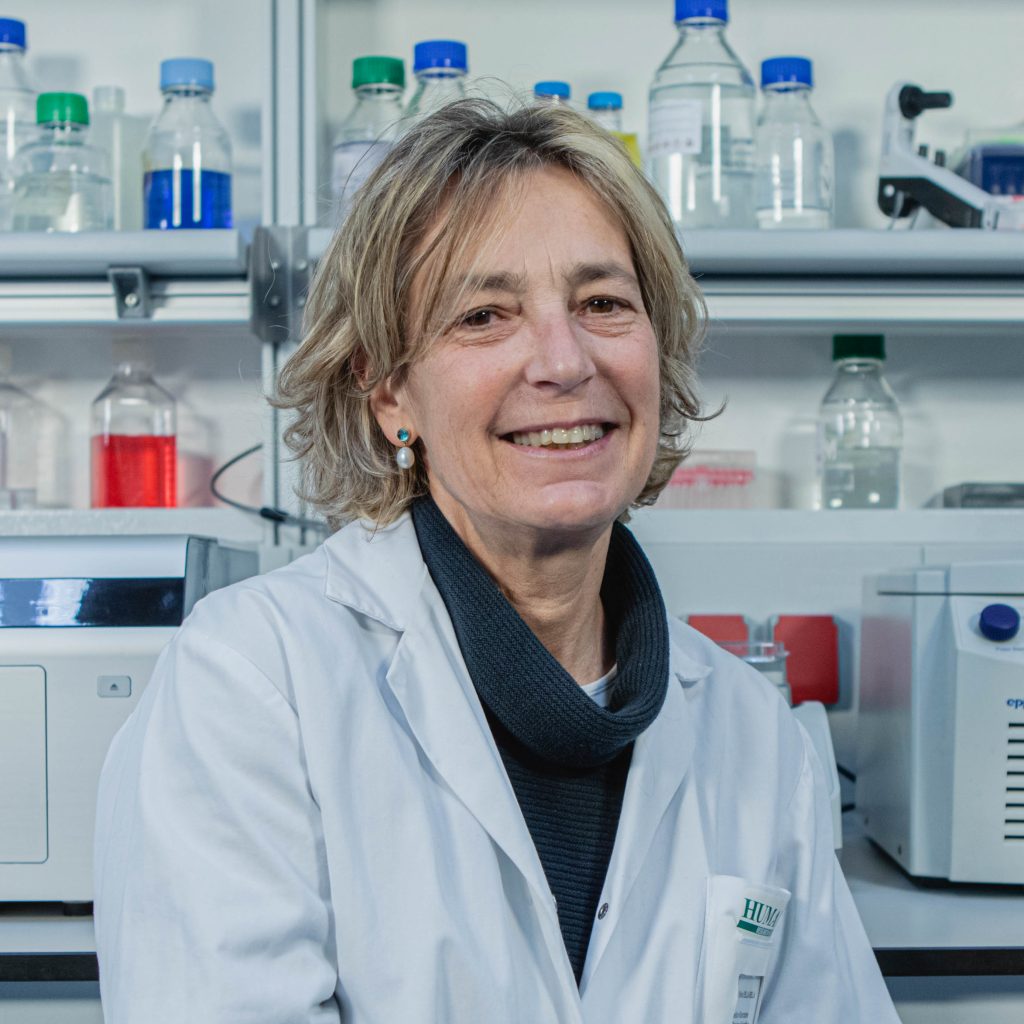Silvia Della Bella is Associate Professor of General Pathology and Immunology at the University of Milan. She graduated in Medicine and Surgery at the University of Milan, where she also obtained her postgraduate Specializations in Allergology and Clinical Immunology, and in Internal Medicine. Driven by a strong interest in translational immunological research, she also obtained a PhD in Internal Medicine. From 2001 to 2011 she directed the Lab of Immunology at the Department of Biomedical Sciences and Technologies of the University of Milan, where she started the Lab of Flow Cytometry. Then she moved to the Department of Medical Biotechnologies and Translational Medicine, at Humanitas Research Hospital, where she is Senior Staff Scientist in the Clinical and Experimental Immunology Lab, leading a research team that aims at investigating dendritic cells and other tumor-infiltrating immune cells in human solid tumors, mainly focused on glioblastoma and thymic epithelial tumors.
Her research activity has been mainly focused on the immunobiology of human dendritic cells in distinct physiological and pathological conditions including pregnancy, aging, viral infections and cancer; and on the characterization of endothelial dysfunction in human diseases, including cancer and cardiovascular diseases, investigated through endothelial progenitor cells.
Based on her long-standing expertise in Flow Cytometry, from 2014 to 2021 she has been member of the Executive Board and Secretary of the European Society for Clinical Cell Analysis (ESCCA), a scientific society devoted to the standardization, validation and dissemination of flow cytometry. Her teaching activity includes teaching Immunology and General Pathology in Degree programs of Medicine, Postgraduate and Doctoral Schools, as well as supervision and training of undergraduate, PhD and MD-PhD students hosted in the lab for the preparation of their experimental theses. She is author of more than 80 research papers and reviews published in international peer-reviewed scientific journals and more than 150 communications in national and international meetings.
